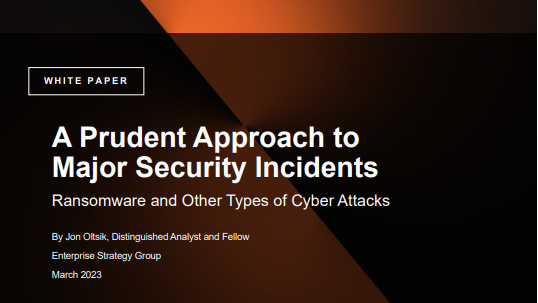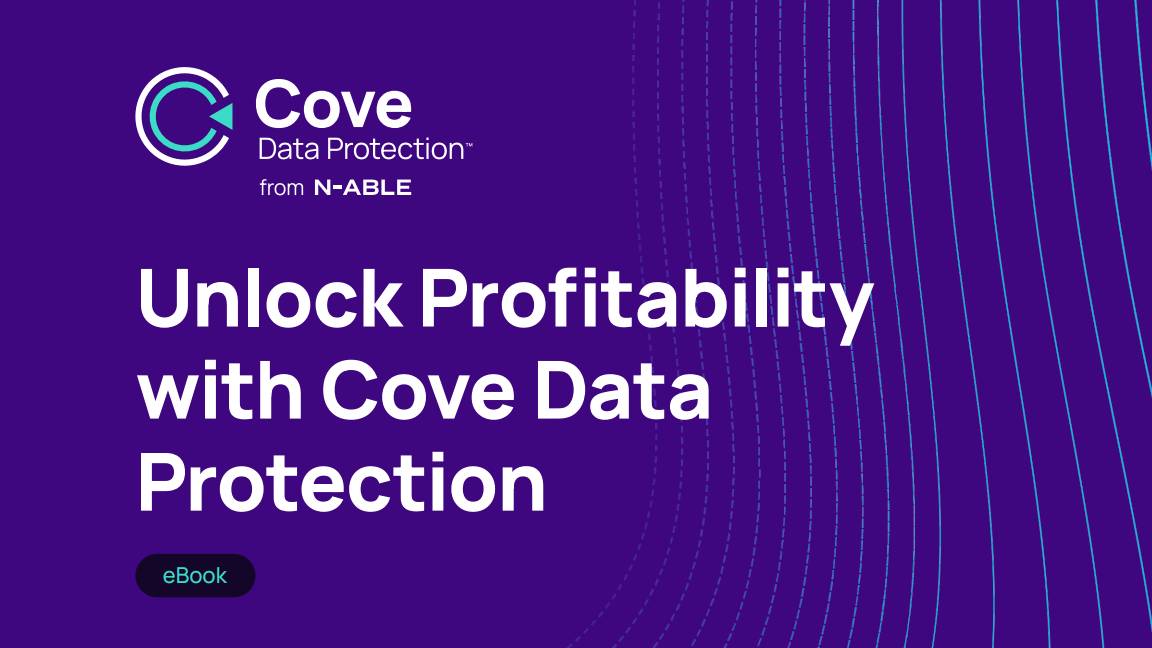Why MSPs should focus their attention on data protection services, not backup
Accommodating for unique customer needs should be a key focus for channel partners


Asking a customer to change their backup solution can be trickier than asking them to change any other part of their IT setup.
When a customer is comfortable with their backup and trusts it, there’s a perception that changing it means taking a risk with something unknown.
But the result is a trend whereby backup solutions tend to be taken on by an accommodating MSP, rather than switching the customer to the MSP’s preferred solution.

A leader in the data protection and disaster recovery markets, Eric puts his 25+ years of experience to work helping MSPs understand how to turn backup into a competitive growth driver.
Unfortunately, for the MSPs who agree to this, this can quickly lead to maintaining several different backup products. Keeping a few customers happy can quickly become a major headache and a drain on resources.
The pitfalls of multiple backup solutions
MSPs often manage four or more backup solutions at once. Sometimes these are at different stages of maturity — one is being onboarded, another is being sunset, and yet another is used for long-term retention — while others are maintained due to customer demand.
This can get increasingly out of control.
Each additional backup solution means more cost and not reaping the benefits of scale that comes from serving many customers with the same solution. Each solution means more complexity and more opportunity for something to go wrong.
ChannelPro Newsletter
Stay up to date with the latest Channel industry news and analysis with our twice-weekly newsletter

When almost any other system goes wrong, the problem will be flagged immediately, usually by the customer complaining.
Backup, on the other hand, has the potential to go wrong without anyone noticing. It shouldn’t, of course, automatic alerts and dashboards should flag up the problem, but any sensible MSP won’t rely on this alone. They’ll want to check — and checking on several solutions obviously takes more time.
RELATED RESOURCE

Confidently protect your organization from cyber criminals.
DOWNLOAD FOR FREE
There are also additional costs thanks to the need for patches on multiple systems and training staff on all systems. Inevitably, with multiple solutions, some staff will be experts on some but not others, which can cause issues when staff leave or even just take time off.
Knowledge gaps are far more common when there are too many solutions to maintain. MSPs need to either tackle this problem before it takes hold or start to change how they work with their customers when it comes to protecting their data.
Don’t sell ‘backup’
Of course, when we say, “don’t sell backup”, we don’t mean it quite as literally as it first appears. MSPs shouldn’t be selling their customers on a specific backup solution. Instead, they should be selling data protection services.
What does this mean in practice? MSP customers shouldn’t have to care about the name of a product — all they need to know is the agreed SLA and recovery targets.

How this is done should be down to the MSP, rather than the customer. All the customer needs to care about is their business remaining operational should the worst happen.
MSPs and their customers should spend time working out what will be protected (data, systems, applications), how often backups will take place, how quickly it can be recovered, and what it will cost.
People might care about the logo on the front of the car they are driving — they care much less about who made the vehicle if they’re taking transit — all they care about is whether it’s comfortable and gets them there on time.
This is easier said than done. Some customers, as mentioned above, may be unwilling to change what already works for them. Changing the conversation to targets and SLAs over solutions may help, but this is in effect a sales conversation much like any other, with a need to outline the benefits and objections to overcome.
No MSP would want to say “no” to a potential customer, but they need to keep in mind that taking on an extra product is not trivial, and the time spent on onboarding and training — among other costs — has the potential to drastically reduce how profitable that customer could be.

MSPs have spent a great deal of time and energy shifting from old break/fix business models. Working with multiple backup solutions due to customer demand is in some ways a holdover from those old ways of working.
Taking a firm line, while selling the benefits of their preferred data protection services, is key to making backup a profitable part of the business. And it’s vital for educating on customer security too, which should always be the role of the MSP.

A leader in the data protection and disaster recovery markets, Eric Harless puts his 25+ years of experience to work helping MSPs understand how to turn backup into a competitive growth driver.
-
 Bigger salaries, more burnout: Is the CISO role in crisis?
Bigger salaries, more burnout: Is the CISO role in crisis?In-depth CISOs are more stressed than ever before – but why is this and what can be done?
By Kate O'Flaherty Published
-
 Cheap cyber crime kits can be bought on the dark web for less than $25
Cheap cyber crime kits can be bought on the dark web for less than $25News Research from NordVPN shows phishing kits are now widely available on the dark web and via messaging apps like Telegram, and are often selling for less than $25.
By Emma Woollacott Published
-
 NHS supplier hit with £3m fine for security failings that led to attack
NHS supplier hit with £3m fine for security failings that led to attackNews Advanced Computer Software Group lacked MFA, comprehensive vulnerability scanning and proper patch management
By Emma Woollacott Published
-
 Strategies for guarding against emerging cyber risks and invisible threats
Strategies for guarding against emerging cyber risks and invisible threatsIndustry Insights Attacks are evolving at a rapid pace, here are the key areas where the channel can help businesses bolster their defenses for the year ahead
By Mick Paisley Published
-
 ‘It’s your worst nightmare’: A batch of €5 hard drives found at a flea market held 15GB of Dutch medical records – and experts warn it could’ve caused a disastrous data breach
‘It’s your worst nightmare’: A batch of €5 hard drives found at a flea market held 15GB of Dutch medical records – and experts warn it could’ve caused a disastrous data breachNews Robert Polet made a startling discovery after finding hard drives on sale for €5 each in a flea market.
By Solomon Klappholz Published
-
 Unlock profitability with Cove Data Protection
Unlock profitability with Cove Data ProtectionWhitepaper Agile risk management starts with a common language
By ITPro Published
-
 UK businesses patchy at complying with data privacy rules
UK businesses patchy at complying with data privacy rulesNews Companies need clear and well-defined data privacy strategies
By Emma Woollacott Published
-
 GDPR fines might’ve dipped last year, but don’t get complacent – personal liability risks are rising
GDPR fines might’ve dipped last year, but don’t get complacent – personal liability risks are risingNews A decrease in big GDPR fines doesn’t mean it’s plane sailing for enterprises in 2025
By Emma Woollacott Published
-
 Four years on, how's UK GDPR holding up?
Four years on, how's UK GDPR holding up?News While some SMBs are struggling, most have stepped up to the mark in terms of data governance policies
By Emma Woollacott Published
-
 Where will AI take security, and are we ready?
Where will AI take security, and are we ready?whitepaper Steer through the risks and capitalise on the benefits of AI in cyber security
By ITPro Published